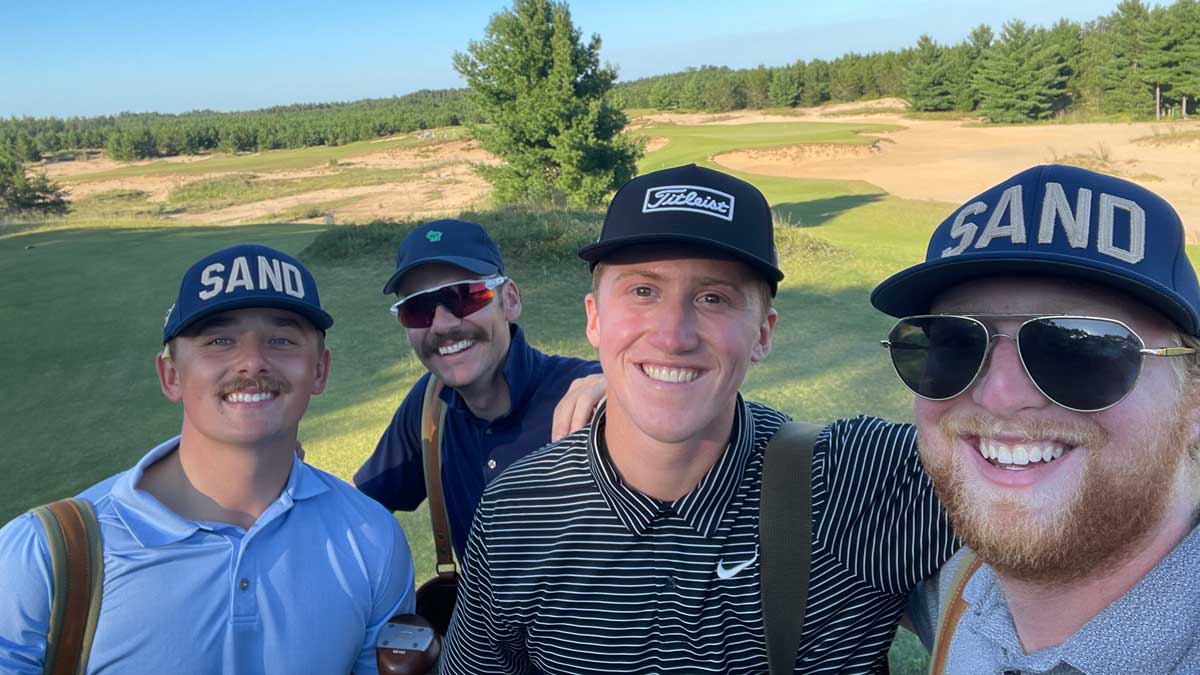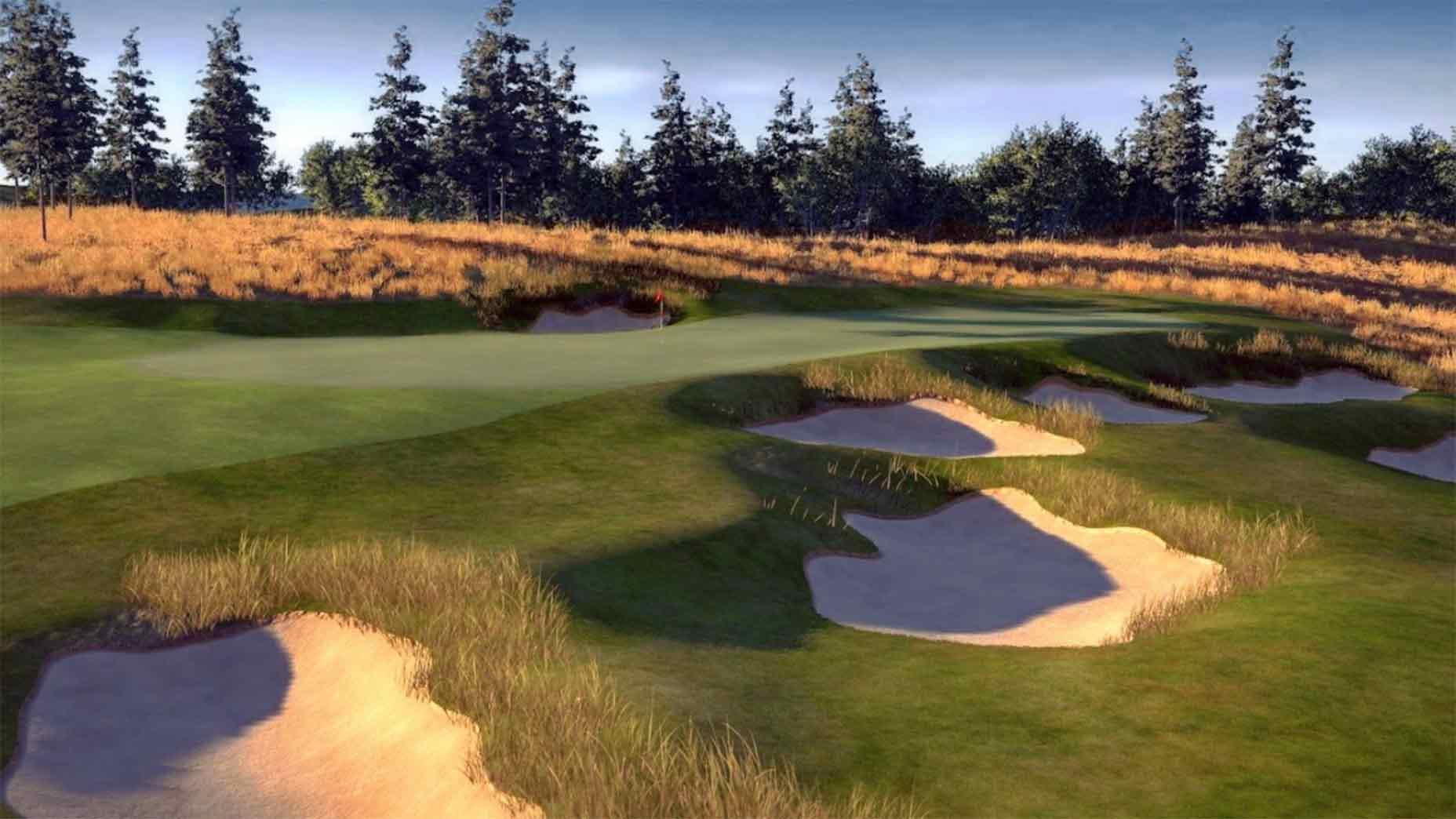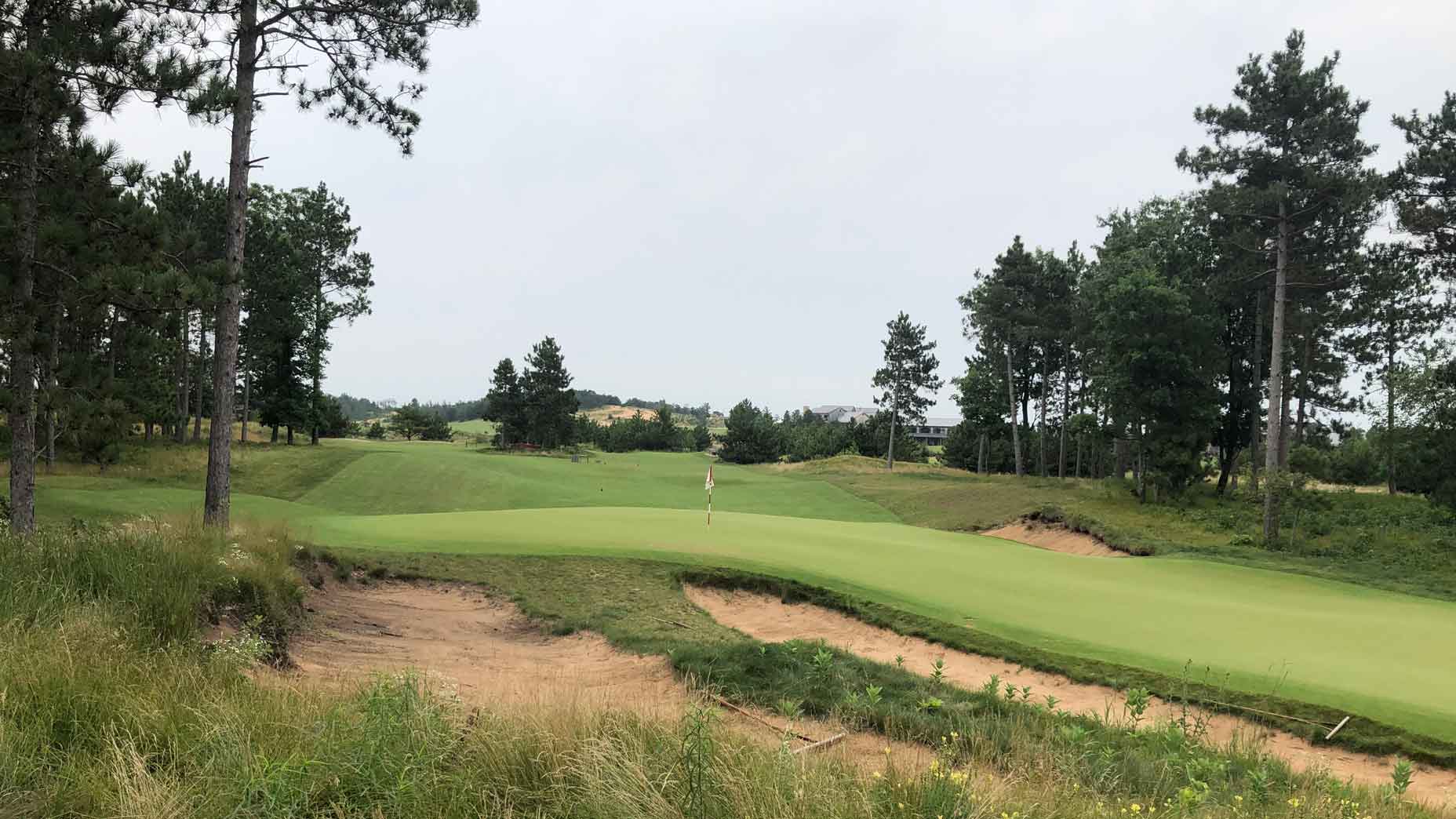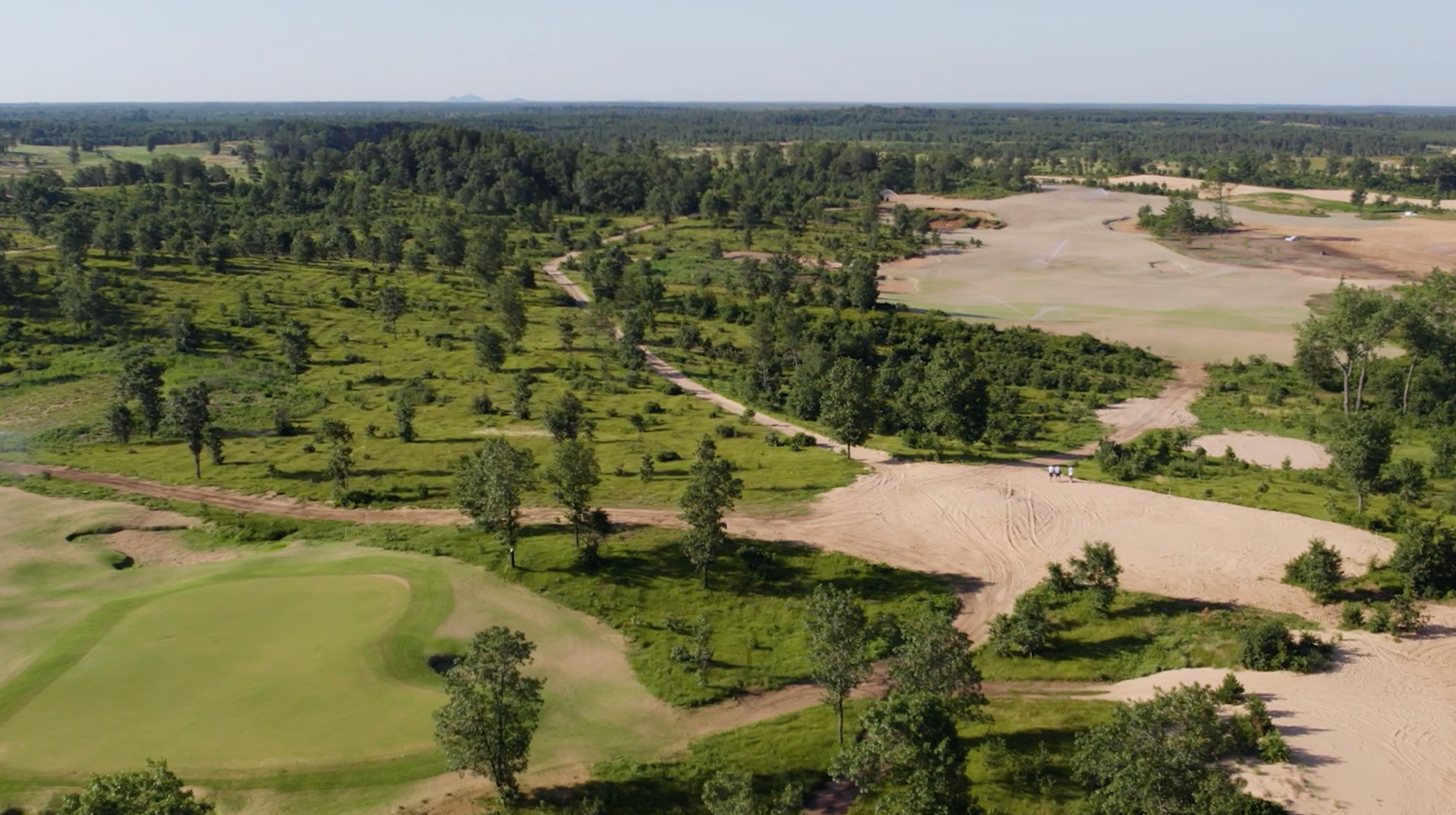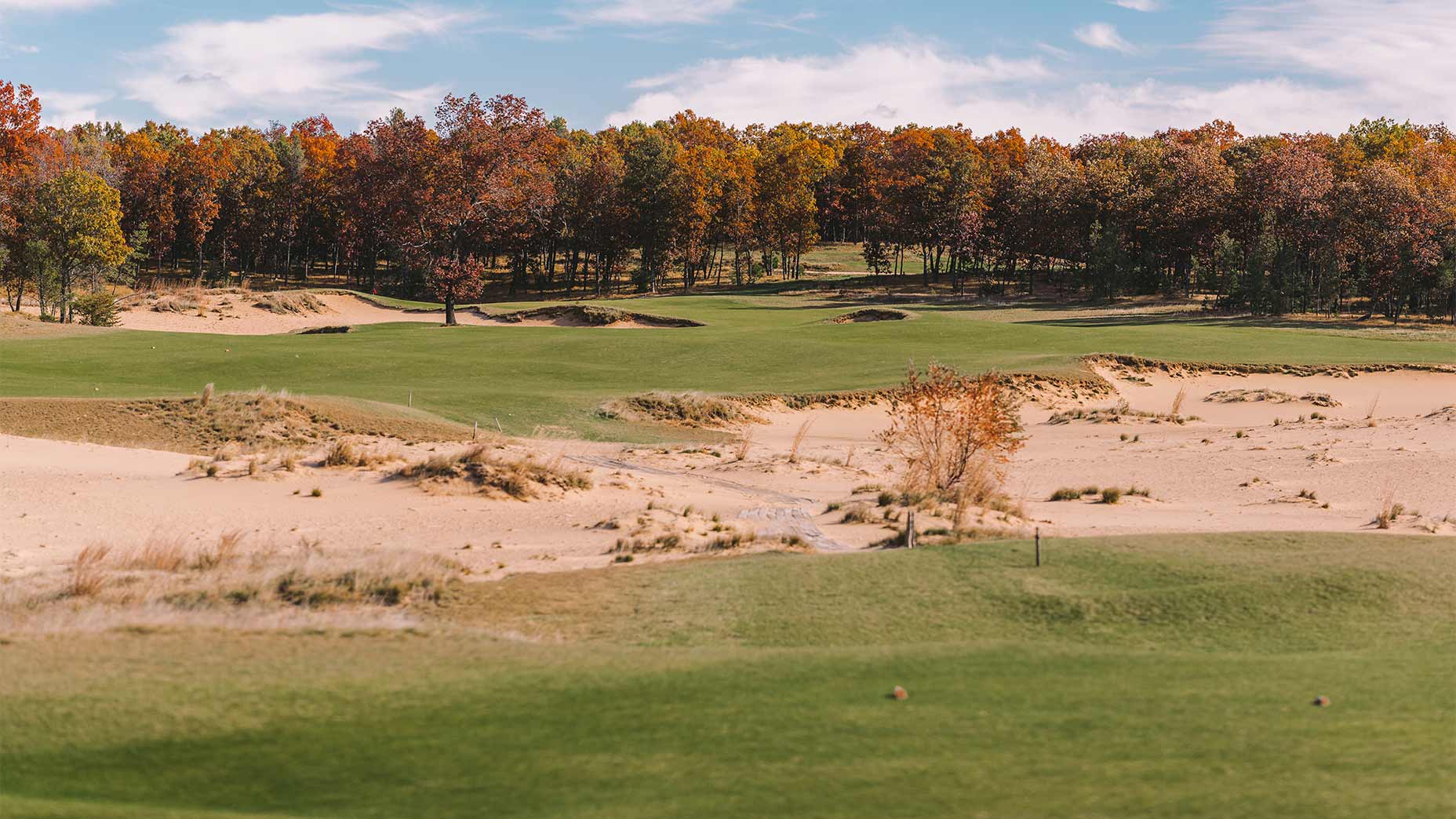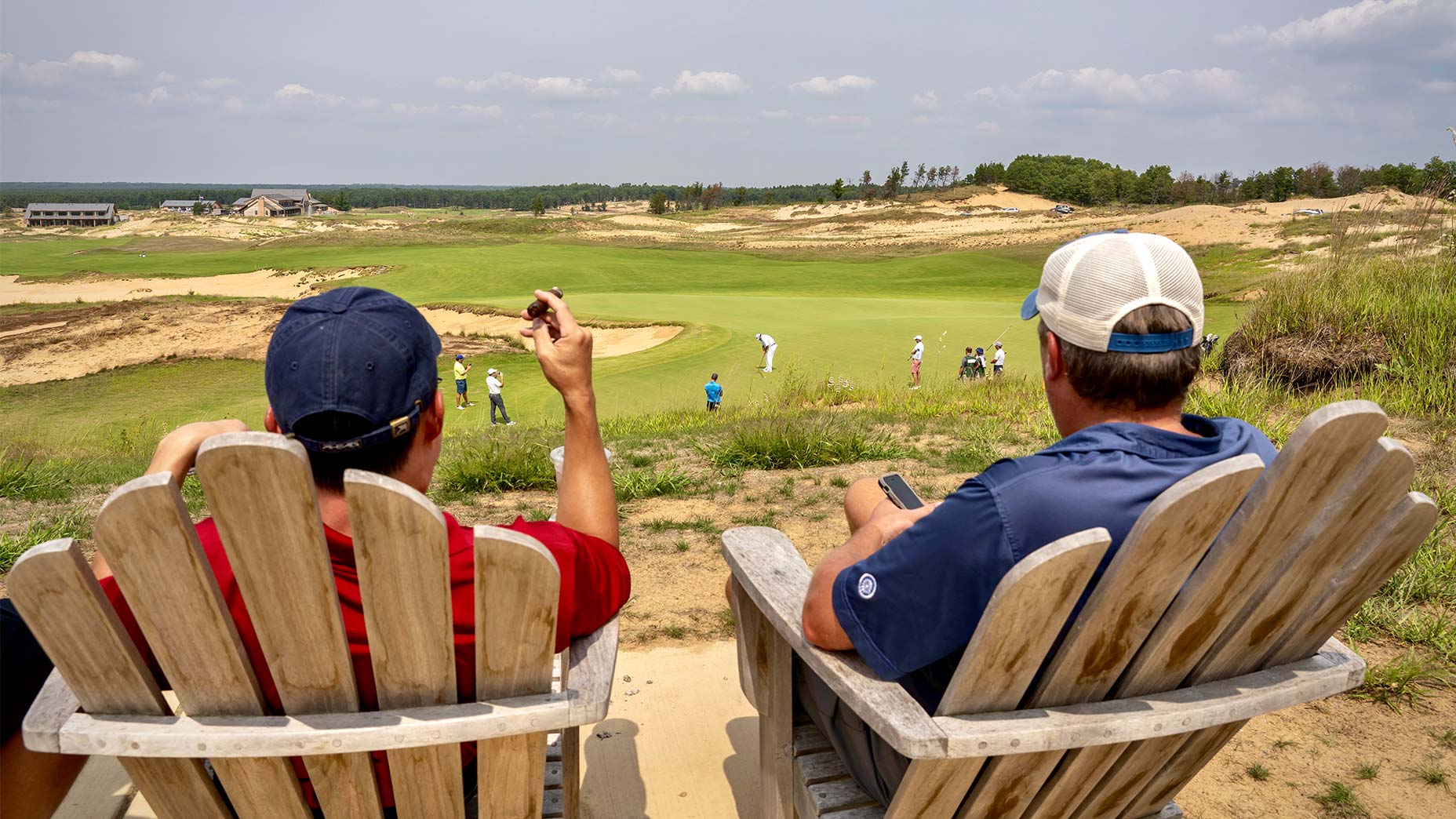There is no better feeling than a true aha moment, when the proverbial lightbulb flicks on and the cloud of uncertainty lifts. At just 21 years old, I’m fortunate to have had such an epiphany that led me to pursue a career as a golf professional. I couldn’t tell you the date or time of that exact moment, but I do know that the three months I spent at Sand Valley, in Nekoosa, Wisc., forever changed the trajectory of my life.
Upon my arrival at the resort for my golf operations internship last summer, I was immediately entrusted to deliver a top-shelf experience to guests. My expectation was to put my head down, go to work and, when I was off the clock, play golf. I did a lot of that, but I also picked up so much more along the way.
Below are my eight essential takeaways from working at a golf resort; please know that this experience and others like it are not exclusive to myself or my peers, but available to anyone who has the desire and ambition to seek them out.
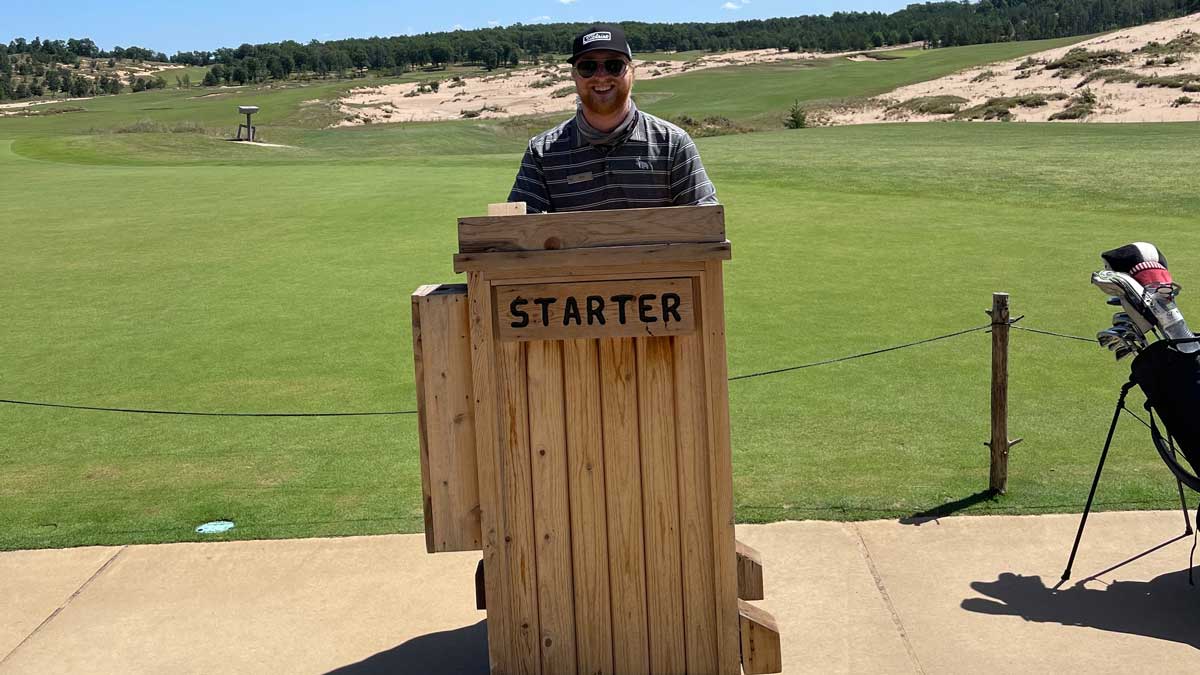
1. The diamonds are in the details
There’s a certain baseline knowledge you’ll need to work at a golf resort — being able to direct guests around the property, to a first tee, the practice facility or restaurant, etc. — but don’t stop there! Getting the most out of your work experience means being as knowledgeable as possible about the resort, its courses and history.
When interacting with guests, you should be able to talk about the holes, course architecture and upcoming developments at the resort. At Sand Valley, for example, that level of details includes knowing that the only way sand deposits got to Central Wisconsin was by way of a glacial dam bursting 10,000 years ago.
Knowing why Sand Valley’s short course, the Sandbox, has 17 holes is another great example. When resort owner Michael Keiser Jr. gave designers Bill Coore and Ben Crenshaw the land for the project, he told them to build as many or as few memorable holes as they could find, as long as that number wasn’t 18. The design duo felt that after 17 holes they had accomplished their mission.
Resort visitors typically want to know what few others do: They want to be in on the secret, so the more educated the staff, the better they can cater to questions.
2. Perfect practice makes perfect
Nobody arrives at a golf resort for the first time as a natural employee. I initially thought I would be, because I had studied the courses and had a deep knowledge of golf architecture. But there is no amount of preparation or intellect that could replace guest interaction. You get better by doing, by trying, by making mistakes and by figuring out how to remedy those mistakes.
One of last year’s interns told me that when he first started, he was nervous to be the first one to attend to a car at the front circle. After a few weeks of practice, though, the intern was not only eager to take the call to action but also began leading and directing other members of the outside team. He said he has taken those learned leadership and personal-interaction skills to his next job.
3. Free unlimited golf will do wonders for your game
At Sand Valley we were not only allowed but also highly encouraged to play as much golf as we could. If you’re not familiar with the resort, the property boasts two of GOLF’s Top 100 Courses in U.S. in Sand Valley and Mammoth Dunes, in addition to one of the most renowned short courses in the Sandbox. Employees at the resort are allowed to play the Sandbox in the mornings, championship-length courses in the afternoons and are given access to a private section of the driving range any time the practice facility is open.
I came to the resort in May a 14-handicap with a debilitating slice and left three months later a 10-handicap with a straighter, longer shot. By the beginning of the 2022 season, the practice routine I had established in Wisconsin had me down to an 8-handicap, and I don’t plan on letting the progress stop.
It was the first time in my life that I practiced golf with intention, rather than simply going out and playing. On property, I played just shy of $6,000’s worth of golf for free (but who’s counting, right?!), not including the thousands of range balls flushed in the process. What I can’t quantify is the value of people I met, worked and played with; they made my rounds priceless.
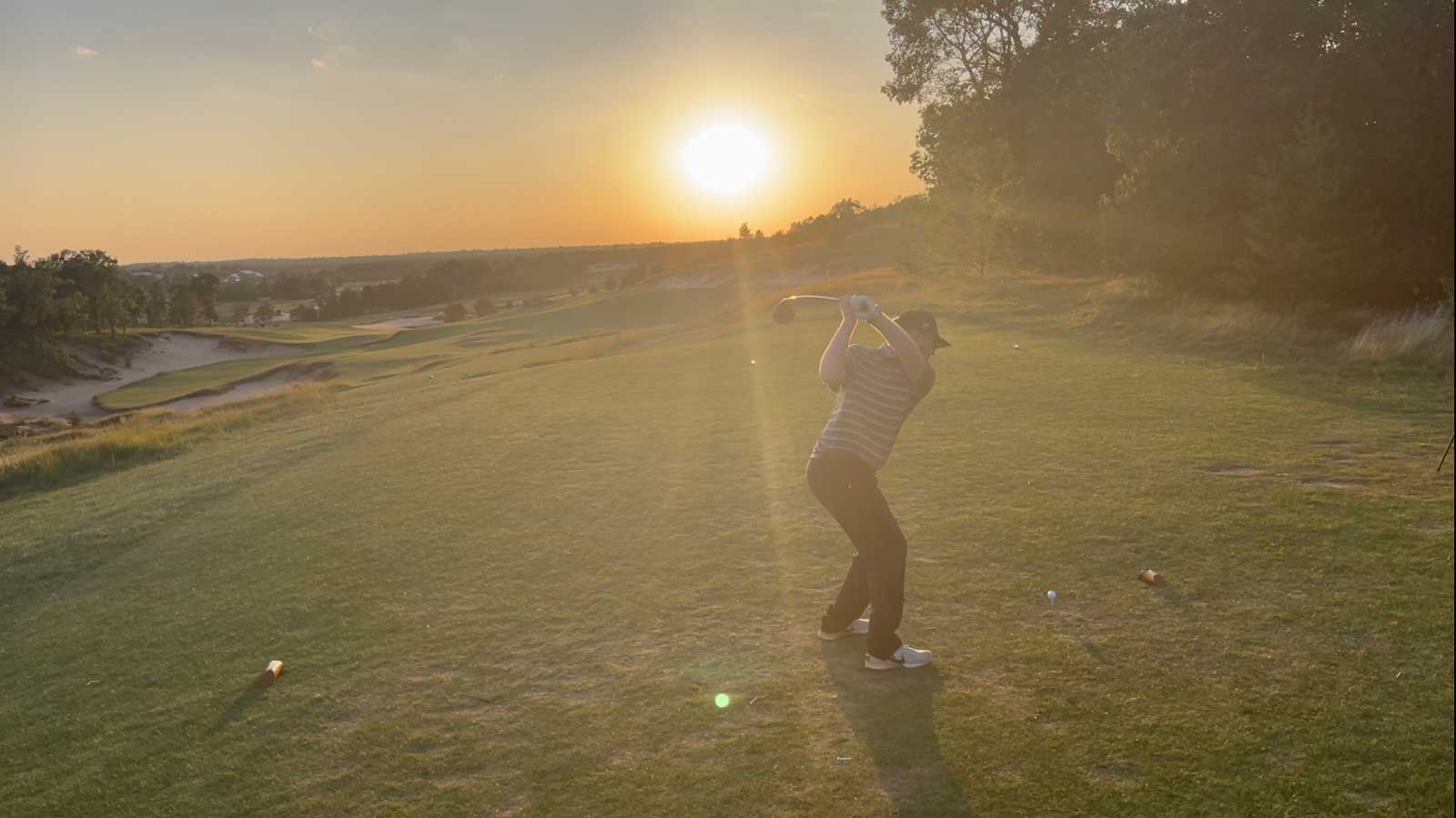
4. Golf professionals are an intern’s biggest asset
For those in the golf industry, leaving the game in better shape than you found it means more than just raking bunkers and repairing ball marks. It implies equipping the next generation with the skills and resources to succeed.
Phrases like for the good of the game and grow the game get thrown around a lot, but for professionals they are creeds to live by. Director of Golf Jonathan Stuart and Head Professional Derek Guzman put these mantras into action by developing the Sand Valley Professional Development Academy (SVPDA). The administration would regularly bring in outside industry professionals, such as local club brand representatives, teaching professionals or Wisconsin PGA reps, to educate the staff on skills they may not pick up through their responsibilities in the daily operation.
Stuart and Guzman wanted incoming interns to know they’re getting more from their superiors than just a job when they sign on to work at Sand Valley. They want the resort to be the professional development hub of the Midwest for those interested in golf careers, and they’re putting down the infrastructure to make that goal a reality.
As a result, since the start of SVPDA, every intern who was looking for winter employment was able to find work. While few resorts have their professional development as thoroughly planned as Sand Valley does, most golf professionals are more than willing to lend a helping hand. Don’t be afraid to reach out and ask for advice — frequently, you’ll get it.
5. Who you know and where you’ve been are vital to the next job
Another major factor in SVPDA’s purpose was to establish what having Sand Valley on a resume truly means. Future employers will see Sand Valley on my resume and know that my experience went beyond that of a daily resort operation. For that reason, you can find Sand Valley alumni at several of the most recognizable golf clubs in the country, including but not limited to Augusta National, Ohoopee Match Club, Troubadour Golf & Field Club, The Olympic Club and Streamsong Resort.
Sand Valley to add Tom Doak design. Here’s what will set it apartBy: Josh Sens
Before my time in Wisconsin came to an end, I had a position lined up at storied Merion Golf Club, in Ardmore, Pa., to accompany my senior year of college, and I’ve parlayed those experiences into a dual internship at two of Long Island’s golden age gems for this season. Be sure to hold on to your connections beyond your time working at a club. I still use my supervisors from Sand Valley as a sounding board when it comes to career questions, and there’s no telling how many of my fellow interns will go on to become excellent head professionals at elite courses in the future.
6. Surrounding yourself with happy people makes for an enjoyable work experience
One of my first jobs out of high school was a little league baseball umpire. I did my best to call the games impartially, but I learned quickly that no matter what I said or did somebody would be mad. It was no fault of my own, strictly the nature of the position.
Working at a golf resort you are surrounded by people who are genuinely happy to be there. A trip to a golf resort like Sand Valley can require significant preparation time leading to months of anticipation before that first tee ball takes flight. Being a part of fostering that experience for guests was the most rewarding part of my golf resort working experience.
This led inside operations intern, Michael Wronkiewicz, to believe that everyone should work in hospitality or service industries at some point in their lives. “It teaches you so much about dialect, how to talk with anyone” he said. “Those skills will be applicable in anywhere else we go.”
No matter what our guests shot or how they played, they usually walked off the final green with a smile on their faces, because the buildup was worth the wait. The job of preserving that feeling is easy when all you have to do is lean into their active emotion. The joy the guests experience on property was infectious and added to an incredible working dynamic.
7. PGA membership is attainable for anyone who is willing to put in the work
The most significant factor that swayed me away from working in golf for the first 20 years of my life was the idea that I would be letting my career hinge on my ability to play golf at an elite level. Through lessons and practice, I learned that I was not as far away from passing the PGA’s Playing Ability Test (PAT) as I once thought.
At Sand Valley in Wisconsin, everything is friendly — except for the sandBy: Nick Piastowski
The PAT is typically held at a simple golf course playing between 6,300-6,500 yards with pins placed in, or close to, the center of the greens. The PGA wants applicants to pass, and sets up their courses to reflect this, but still requires a player to shoot a solid number to do so. Depending on the slope and rating of the course, a 36-hole passing score usually falls between 155-159, or an average round in the high 70’s.
The PGA is ensuring applicants can demonstrate control and consistency. It’s easy to believe that to become a PGA professional one would need to be a scratch golfer, but that is simply not the case. Honing your game will garner you respect among your peer professionals, but it is not always necessary to get a foot in the door.
8. You gotta love it!
If you decide to take a job at Sand Valley or any golf resort, you have to truly love the game — not just playing or watching but everything it encompasses. You will work long hours in every sort of weather condition imaginable. You will be tasked with remedial projects like picking balls off the range before maintenance day, or ensuring water coolers are full during a heat wave.
You’ll pour half-full beers in the garbage as you clean out golf carts, and carry plenty of leaky trash bags on long walks to the dumpster. While other tasks might be more fun everything you do will be necessary to curate an unforgettable experience. That is the part you have to love.
If you’re reading this, chances are you love the game — that’s the easy part. You’ll also need to love being a part of the show. If you can learn to do that, as I did, I can promise you the job won’t feel like work.
